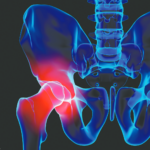Since the release of this paper, I have asked many of my RA patients who have successfully weaned off steroids what they thought about the concept of taking prednisone in addition to their methotrexate. To a person, they related how they never wanted to go back on steroids. They remembered the weight gain, the facial swelling, and the mood swings. Yet, to my surprise, the authors of the Annals study downplayed the issue of steroid-related side effects; none of these unpleasant toxicities were even listed or discussed in the results section of their paper. This issue of whether or not to consider steroids as disease-modifying drugs will require considerable further study. The repercussions of a positive outcome would have a seismic effect on the management of RA.
Neville’s Dilemma
My patient Neville is not a big fan of steroids. The pain that he occasionally experiences from a slowly healing vertebral compression fracture reminds him of his personal aversion to the drug. As he says, he prefers taking his methotrexate “neat, no prednisone please.”
We reached a compromise on his martini consumption; he promised to follow the guidelines of the British Society for Paediatric and Adolescent Rheumatology, which permit an occasional alcoholic beverage. I countered by requiring him to have monthly liver function studies. Neville loves the idea of being treated like an adolescent.
Dr. Helfgott is physician editor of The Rheumatologist and associate professor of medicine in the division of rheumatology, immunology, and allergy at Harvard Medical School in Boston.
References
- McEntee J. Can patients drink alcohol whilst taking long-term low-dose methotrexate? Published January 4, 2012. Available at www.nelm.nhs.uk/en/NeLM-Area/Evidence/Medicines-Q–A/Can-patients-drink-alcohol-whilst-taking-long-term-low-dose-methotrexate. Accessed May 14, 2012.
- British Society for Paediatric and Adolescent Rheumatology. Methotrexate for rheumatological conditions. Published March 2011. Available at www.bspar.org.uk/DocStore/FileLibrary/PDFs/BSPAR%20guidance%20for%20methotrexate%202012.pdf. Accessed May 14, 2012.
- Cannon M. Methotrexate. Updated August 2009. Available at www.rheumatology.org/practice/clinical/patients/medications/methotrexate.asp Accessed May 14, 2012.
- Bakker MF, Jacobs JW, Welsing PM, et al. Low-dose prednisone inclusion in a methotrexate-based, tight control strategy for early rheumatoid arthritis: A randomized trial. Ann Intern Med. 2012;156:329-339.
- Kirwan JR. Combination therapy including glucocorticoids: The new gold standard for early treatment in rheumatoid arthritis? Ann Intern Med. 2012;156:390-391.
